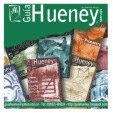by Roberto Espinosa
Writer-Environmental Specialist
The Bicentennial Anniversary of the historical feat of May 1810 is just a few days away. Fireworks and sparklers shows will be broadcasted, and landmarks alluding to this historical date will be inaugurated. Lots of people will probably dance our traditional Pericón Nacional, as well.
Unfortunately, these ceremonies will take place, and none of the moral, political and social problems that gave rise to the movement leading to our Independence – which are still present and have worsened with the passing of years – will be dealt with. Again, we will have lost the chance to debate and agree on the kind of country we want.
Most Latin-American countries endure the consequences of demagogy and the simplistic speeches of politicians, whereas transnational corporations go on subduing these peoples, sacking, destroying and contaminating their natural resources without any type of restriction.
Consider what is happening in Argentina:
· Foreign mining companies – which our legislation allows to work in the country without almost any control–, are destroying the enormous natural richness kept under our soil, thus destroying important natural environments, and contaminating rivers, brooks and glaciers.
· Million hectares are being deforested to cultivate soybean, which is later exported. Nineteen million hectares were sown during the last productive campaign. We must consider that when soybean is exported, the fertility of our soil, and large volumes of water (2,500/3,000 m3 per ton) are also sold, and that the indiscriminate use of agrochemicals makes our soil barren and contaminates our rivers. This year, Argentina will export 58 million tons of soybeans.
The well-known sustainable development programs are carried out by deploying natural resources. Thus, environmental problems are caused by political and economic wrong decisions, just as poverty and famine.
The constitutional right to live in a healthy environment (section 14 of Argentina’s National Constitution) must be considered as a basic human right, a pre-requisite and a basis for others rights – human, economic and political - to be enforced. A healthy environment is a sine qua non for living: no other right can be enforced in an unhealthy or altered environment.
¿Do we have to wait until the tercentennial anniversary to think about these topics?


